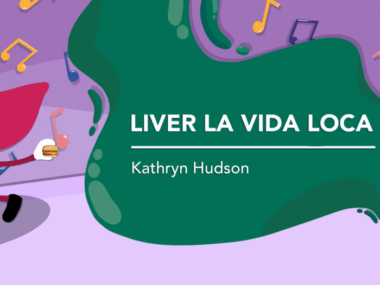When facing a hospital stay, pack a bag and hope for chocolate cake
As a longtime MASH patient, I'm all too familiar with my local hospitals
Written by |

I enjoy listening to the sounds of the city outside my bedroom window at night. Cars hum down the thoroughfare where I live, their headlights splashing brief bursts of light across my wall. All too often, though, ambulance or police sirens will shriek past, bound for nearby hospitals. I live on a nearly direct path to Johns Hopkins, one of the top hospitals in the country. While that proximity is often comforting, it makes me wonder about the people in the backs of those ambulances. Why are they being rushed there? How many nights have they spent in a hospital bed?
As a kid, I had one major accident that left me with lifelong arthritis. I didn’t even have to spend the night in the hospital. Two of my siblings logged far more nights in hospitals as children, but I probably beat them in trips to the emergency department.
A few years ago, I started racking up “frequent flyer” points of my own — this time not for quick fixes, but for overnight stays after being admitted. That’s what happens when your fatty liver moves through the stages of fibrosis. As a longtime metabolic dysfunction-associated steatohepatitis (MASH) patient, I started to feel worn down by the revolving hospital door.
For years, I’d trick myself. Before calling an ambulance or hitching a ride, I’d overpack a bag as a “good luck” charm, hoping a full suitcase would guarantee I’d be sent home. I’d stuff clothes, books, my laptop, and cables into a single overnight bag. The last time I packed that charm, it failed.
Advanced MASH means accepting that many emergency trips will end with you tucked into a hospital bed. Sometimes it’s one night for observation, while other times it’s several, waiting for answers or a room. It’s comforting when doctors find the problem quickly. It’s unnerving when they don’t.
And then there are the rooms themselves. I’ve stayed overnight in at least eight Baltimore-area hospitals, so I know the terrain. One hospital earns props for serving real Maryland crab cakes during Lent. Another gets points for a menu full of American comfort food. I’ve become a reluctant concierge of hospital dining. But good food is secondary. A good nurse is worth more than a Maryland crab cake.
I have friends who are nurses, and many love their jobs and excel at them. Over the past eight years, I’ve learned which hospitals put nurses first. Good nurses make for healthier, happier patients and shorter stays. They also make those long, lonely days more bearable. A hospital without good nurses is like a train without a conductor: Sure, it might move, but will it stay on the tracks?
Then there are roommates. After spending nearly a year in a nursing home when I was very sick, I got used to rotating bedmates. Most were fine. Many were older women who shared stories, fears, and memories. But some roommates were absolute nightmares.
There was the 96-year-old woman who barked orders at young aides for nearly two months while I was in a wheelchair, unable to escape. She never thanked anyone. My nightly prayer became that she’d find help elsewhere. Eventually, she was discharged “back into the wild,” as I called it. Her replacement? A screamer who feigned sleep to dodge doctors. When I outed her, she threatened me. I had to call the police. That was not a good night.
So, call me silly for wondering about all those ambulances racing past my window. As I face yet another hospital stay, at least this time it isn’t an emergency. Surgery that’s planned feels entirely different. I know where I’m going, what’s happening, and yes — I know what’s on the menu. This hospital serves a divine chocolate cake, and I’m clinging to that as one small thing to look forward to. Here’s hoping I get my own room this time. I’m too old to call dibs on the better bed.
Note: Liver Disease News is strictly a news and information website about the disease. It does not provide medical advice, diagnosis, or treatment. This content is not intended to be a substitute for professional medical advice, diagnosis, or treatment. Always seek the advice of your physician or other qualified health provider with any questions you may have regarding a medical condition. Never disregard professional medical advice or delay in seeking it because of something you have read on this website. The opinions expressed in this column are not those of Liver Disease News or its parent company, Bionews, and are intended to spark discussion about issues pertaining to liver disease.



Leave a comment
Fill in the required fields to post. Your email address will not be published.